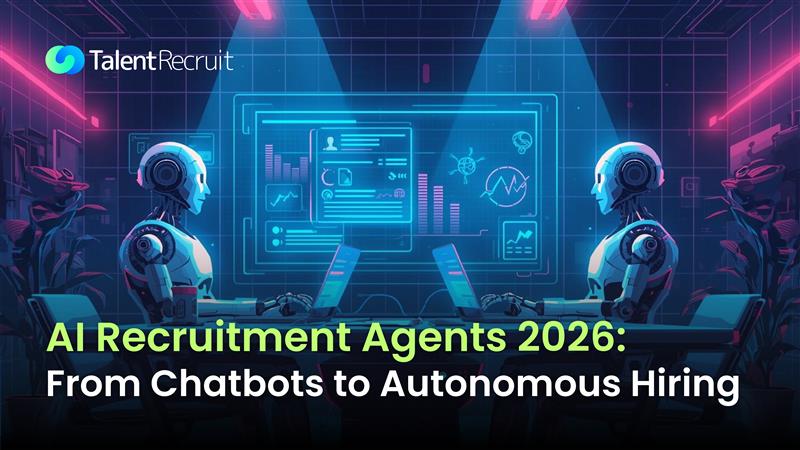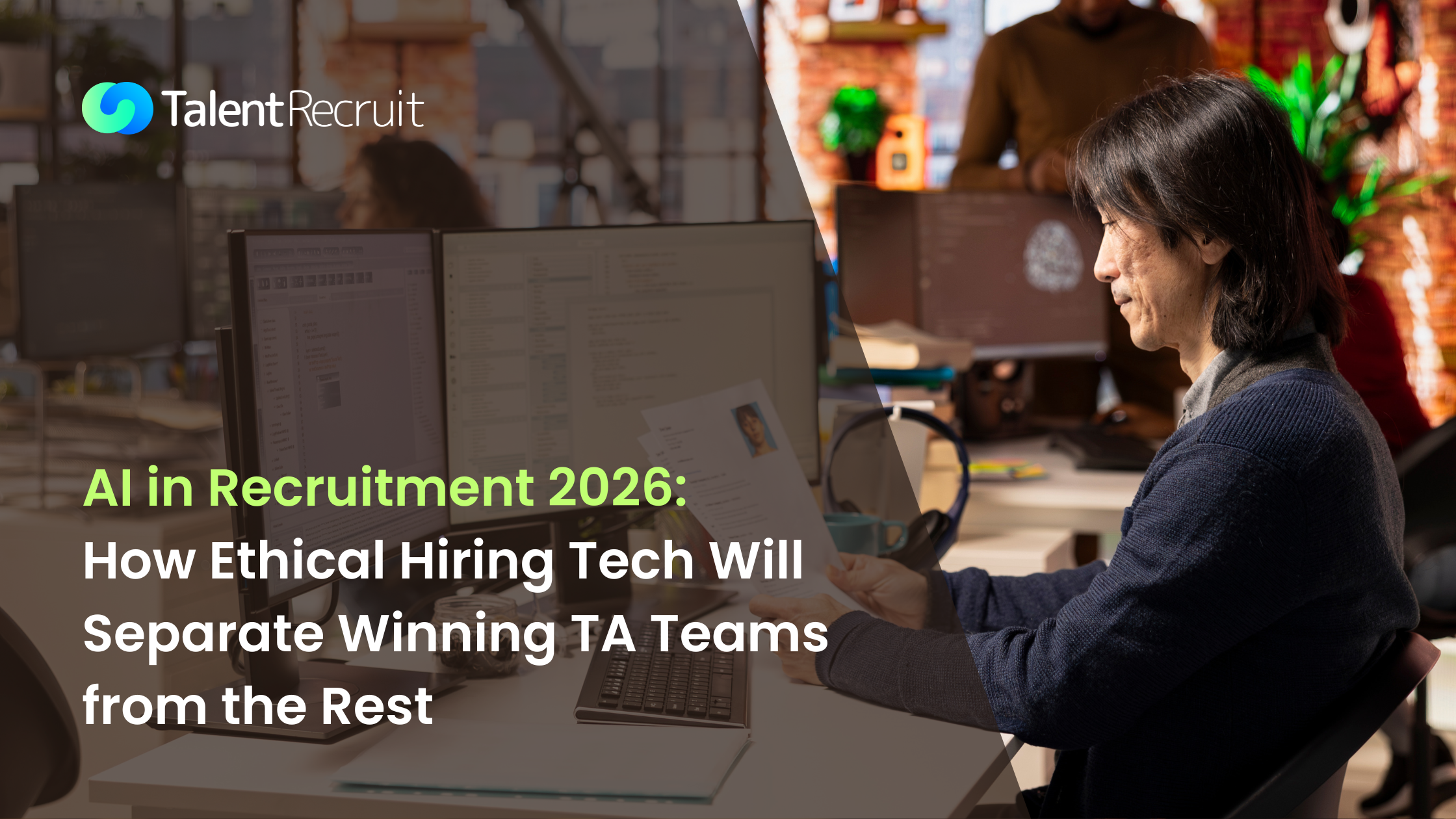Exploring the Future: How Artificial Intelligence is Shaping Candidate Screening
Gone are the days of paper resumes and manual screening processes. The recruitment landscape has evolved significantly with technology, paving the way for more efficient and sophisticated hiring practices.

Enter Artificial Intelligence (AI), the modern superhero of recruitment.
AI algorithms are revolutionizing the candidate screening process by automating tasks, analyzing data, and identifying top talent with lightning speed and precision. In the world of recruitment, candidate screening is like speed dating for job seekers and employers. It involves sifting through resumes and profiles to find the perfect match. However, with the rise of artificial intelligence (AI), this matchmaking process has gotten a high-tech upgrade.
Artificial Intelligence (AI) has revolutionized numerous industries, and the realm of recruitment is no exception. In today's competitive job market, organizations are increasingly turning to AI technologies to streamline and enhance their candidate screening processes. By leveraging AI algorithms and machine learning capabilities, employers can efficiently sift through vast numbers of resumes, assess candidate qualifications, and identify the best-fit individuals for their open positions. According to a recent survey, 99% of all Fortune 500 companies are now using AI to screen candidates in the first, second, or even third round in the hiring process.
Uncover the complexities of using AI in candidate screening through this detailed article that analyzes its benefits, obstacles, ethical considerations, best methods, upcoming trends, and practical case studies.
Benefits of Using AI in Candidate Evaluation
AI isn't just a fancy accessory in the recruitment world – it's a game-changer.
Here are a couple of perks that come with letting AI take the reins in candidate evaluation:
Improved Efficiency and Time Savings
AI can also help recruiters identify top talent more efficiently by analyzing data and patterns to predict which candidates are most likely to succeed in a role. This not only saves time but also improves the quality of hires, leading to better overall performance within the organization.
With AI taking care of the tedious tasks, recruiters can spend their time building relationships with candidates, networking, and staying up-to-date on industry trends. In this way, AI is not just a tool for efficiency but also a valuable resource for enhancing the human element of recruitment.
Enhanced Candidate Match Accuracy
AI has a knack for playing matchmaker and finding the ideal candidate-employer duo. It can streamline the recruitment process by quickly identifying top candidates based on their skills, experience, and cultural fit. This not only saves time for recruiters and hiring managers but also ensures that the right candidates are being considered for each position.
Challenges and Limitations of AI in Screening Candidates
While AI may be the cool kid on the recruitment block, it's not without its flaws.
According to Market Research Future, A staggering 79% of recruiters believe AI will soon be making hiring and firing decisions. However, 35% of recruiters are concerned that AI might exclude candidates with unique qualities and experiences. The human touch remains essential in recruitment, as 26% of recruiters fear AI could potentially disrupt the HR industry.
Here are certain limitations & challenges that can be expected with the implementation of AI tech in candidate screening:
Potential Biases in AI Algorithms
Just as a flawed compass can lead you astray, biased AI algorithms can steer decision-making processes in the wrong direction. It is crucial to continuously monitor and address biases in AI systems to ensure fair and equitable outcomes. Without proper oversight and intervention, these biases can perpetuate existing inequalities and hinder progress towards a more just society. Just as we would recalibrate a faulty compass, we must actively work to correct biases in AI algorithms to navigate towards a more equitable future.
Integration Complexity and Data Privacy Concerns
Incorporating AI into your current recruitment procedures can be quite challenging and frustrating. From potential compatibility problems with your current systems to worries about data privacy and security, there are definite obstacles to address when introducing AI into candidate screening.
Ethical Considerations in AI-Based Candidate Screening
When it comes to using AI in candidate screening, ethics should be the North Star guiding your decisions. Here are a couple of ethical considerations to keep in mind:
Transparency and Accountability in Decision Making
AI algorithms need to be transparent about how they make decisions. Employers should ensure that the decision-making process is clear and accountable, so candidates aren't left wondering why they didn't get that dream job. Organizations can promote transparency by clearly communicating to candidates the role of AI in the screening process, providing avenues for feedback, and establishing mechanisms to address potential biases and ensure fair treatment of all applicants.
Fairness and Diversity in Candidate Selection
AI should be like a fair judge in a talent show, giving everyone an equal opportunity to shine. Employers need to be vigilant about ensuring that AI doesn't perpetuate biases or hinder diversity in candidate selection.
When diving into the world of AI for candidate screening, it's essential to equip HR professionals with the right skills and knowledge. Training and education are key in helping them understand how AI functions in the recruitment processes. From learning about algorithm bias to mastering the art of interpreting AI-generated insights, continuous education ensures HR teams can make the most of this technology.
Continuous monitoring and evaluation of AI systems is crucial to ensure they are performing effectively and ethically. Regularly checking in on the data inputs and outputs of these systems helps maintain transparency and fairness in the recruitment process. As AI evolves, so should our oversight of its impact on candidate screening.
The key takeaway
AI, or artificial intelligence, plays a crucial role in candidate screening by streamlining and automating the entire process. With the help of AI-powered tools and algorithms, recruiters can efficiently identify the most qualified candidates for a position.
Overall, the role of AI in candidate screening is to streamline and automate the process, making it more efficient and effective. By leveraging AI-powered tools, recruiters can save time, reduce bias, make data-driven decisions, and provide valuable feedback to candidates. This ultimately leads to a more streamlined and successful hiring process, ensuring that the most qualified candidates are identified and selected for a position.

Alok Nidhi Gupta has built this high tech company from scratch as Co-creator of the organization and lead the organization that filed patents in Smart Metering fields. He has been instrumental in the entire design & development of TalentRecruit’s software offerings, it is under his leadership that recruiters across industries have come to rely on TalentRecruit’s robust solutions.




.jpg)













